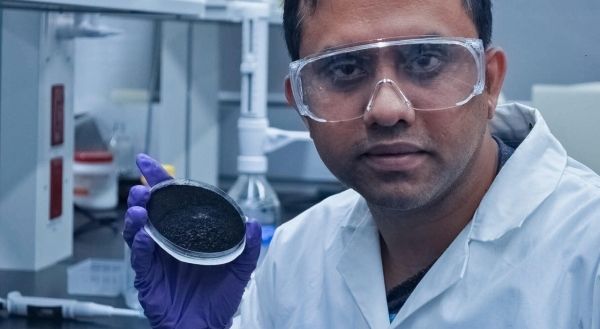A low-cost, versatile type of charcoal known as biochar can be tailored for specific uses including treating water, removing contaminants from soil and even storing carbon, according to new research by University of Alberta scientists.
“First, biochar is an excellent sorbent, meaning that it can be very effective for removing pollutants and contaminants from water,” said geochemist Daniel Alessi, who holds the Encana Chair in Water Resources at the U of A. “Second, it has the potential to increase agricultural fertility, removing contaminants and adding concentrated nutrients to soil.”
Biochar is a form of charcoal produced by heating organic material to temperatures between 300 and 700 degrees Celsius with no oxygen. Made of everything from wood and plant waste to animal manure, it has been used for thousands of years as a soil fertilizer.
Alessi conducted the research with former PhD student Samrat Alam, now a post-doctoral fellow at the University of Toronto. The pair examined how metal binds to biochar at the molecular scale, studying how to adjust its production process to yield biochar that is more effective and efficient for its desired purpose.
Continue reading at University of Alberta.
Image via University of Alberta.


